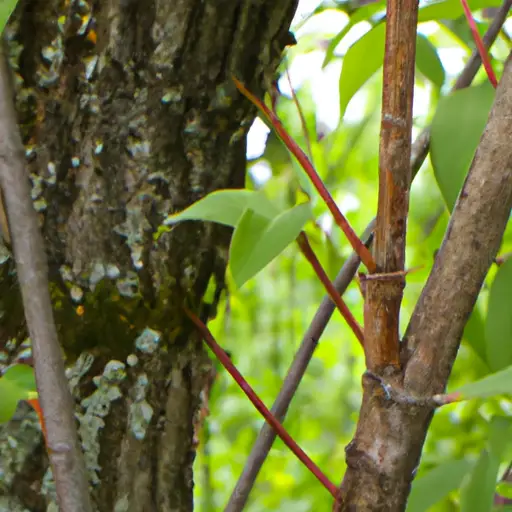Allergic Reactions to Poison Ivy: A Form of Eczema
-
Table of Contents
- Allergic Reactions to Poison Ivy: A Form of Eczema
- Key Takeaways
- Introduction: Unraveling the Connection Between Poison Ivy and Eczema
- The Allergen: Urushiol
- Symptoms and Diagnosis
- Prevention and Treatment
- Complications and Risks
- FAQ Section
- Is everyone allergic to poison ivy?
- How long does a poison ivy rash last?
- Can a poison ivy rash spread?
- What should I do if I come into contact with poison ivy?
- When should I seek medical attention for a poison ivy rash?
- Conclusion: Understanding and Managing Poison Ivy Reactions
- Key Takeaways Revisited
- Further Analysis
- References
Allergic Reactions to Poison Ivy: A Form of Eczema

[youtubomatic_search]
Key Takeaways
- Poison ivy allergic reactions are a form of contact dermatitis, which is a type of eczema.
- Urushiol, an oil found in poison ivy, is the allergen that causes the reaction.
- Approximately 85% of the population is allergic to urushiol.
- Prevention and early treatment are key to managing poison ivy reactions.
- Severe reactions may require medical attention and can lead to complications if left untreated.
Introduction: Unraveling the Connection Between Poison Ivy and Eczema
When we think of eczema, we often picture dry, itchy skin or red, inflamed patches. However, eczema is a broad term that encompasses a variety of skin conditions, including the allergic reaction caused by poison ivy. This article delves into the relationship between poison ivy allergic reactions and eczema, exploring the causes, symptoms, prevention strategies, and treatment options.
The Allergen: Urushiol
Urushiol, an oil found in poison ivy, is the culprit behind the allergic reactions. When this oil comes into contact with the skin, it triggers an immune response in sensitive individuals, leading to symptoms of contact dermatitis, a form of eczema. According to the American Academy of Dermatology, about 85% of people are allergic to urushiol to some degree.
Symptoms and Diagnosis
The allergic reaction to poison ivy typically manifests as a red, itchy rash that can develop into blisters. The rash usually appears within 12 to 48 hours after exposure and can last for two to three weeks. Diagnosis is often based on the characteristic appearance of the rash and a history of exposure to poison ivy.
Prevention and Treatment
Prevention is the best strategy against poison ivy reactions. This includes avoiding areas where poison ivy grows and wearing protective clothing when in contact with the plant. If exposure occurs, washing the skin immediately can help remove the urushiol and prevent a reaction.
Treatment for poison ivy reactions primarily involves relieving the symptoms. Over-the-counter creams and ointments can help soothe the itchiness and inflammation. In severe cases, prescription medications may be necessary.
Complications and Risks
While most poison ivy reactions are mild and resolve on their own, severe reactions can occur. These may include a widespread rash, swelling, difficulty breathing, and fever. Such reactions require immediate medical attention. Additionally, scratching the rash can lead to skin infections, which may require antibiotic treatment.
FAQ Section
Is everyone allergic to poison ivy?
No, not everyone is allergic to poison ivy. However, the American Academy of Dermatology estimates that about 85% of people are allergic to urushiol, the oil in poison ivy that causes the reaction.
How long does a poison ivy rash last?
A poison ivy rash typically lasts for two to three weeks. However, the duration can vary depending on the severity of the reaction and the individual’s immune response.
Can a poison ivy rash spread?
A poison ivy rash cannot spread by touching the rash or the fluid from the blisters. However, urushiol can remain on clothing, pets, or other objects and cause a reaction if it comes into contact with the skin.
What should I do if I come into contact with poison ivy?
If you come into contact with poison ivy, wash your skin immediately with soap and water to remove the urushiol. Avoid scratching the area and apply over-the-counter creams or ointments to relieve the symptoms.
When should I seek medical attention for a poison ivy rash?
You should seek medical attention if you have a severe reaction to poison ivy, such as a widespread rash, swelling, difficulty breathing, or fever. Additionally, if the rash becomes infected or does not improve with home treatment, you should see a doctor.
Conclusion: Understanding and Managing Poison Ivy Reactions
Poison ivy allergic reactions are a form of contact dermatitis, a type of eczema. The reactions are caused by urushiol, an oil found in poison ivy, and can range from mild to severe. Prevention and early treatment are key to managing these reactions. While most reactions are mild and resolve on their own, severe reactions can lead to complications and require medical attention.
Key Takeaways Revisited
- Poison ivy allergic reactions are a form of eczema known as contact dermatitis.
- The reactions are caused by urushiol, an oil found in poison ivy.
- About 85% of people are allergic to urushiol.
- Prevention and early treatment are crucial in managing poison ivy reactions.
- Severe reactions can lead to complications and require medical attention.
[youtubomatic_search]
Further Analysis
Understanding the connection between poison ivy allergic reactions and eczema can help individuals better manage their symptoms and prevent future reactions. Further research into the immune response triggered by urushiol may also provide insights into the broader field of allergic reactions and skin conditions.
References
- American Academy of Dermatology. (n.d.). Poison ivy: Who gets and causes. Retrieved from https://www.aad.org/public/diseases/itchy-skin/poison-ivy-oak-and-sumac
- Mayo Clinic. (2020). Poison ivy rash. Retrieved from https://www.mayoclinic.org/diseases-conditions/poison-ivy/symptoms-causes/syc-20376485


